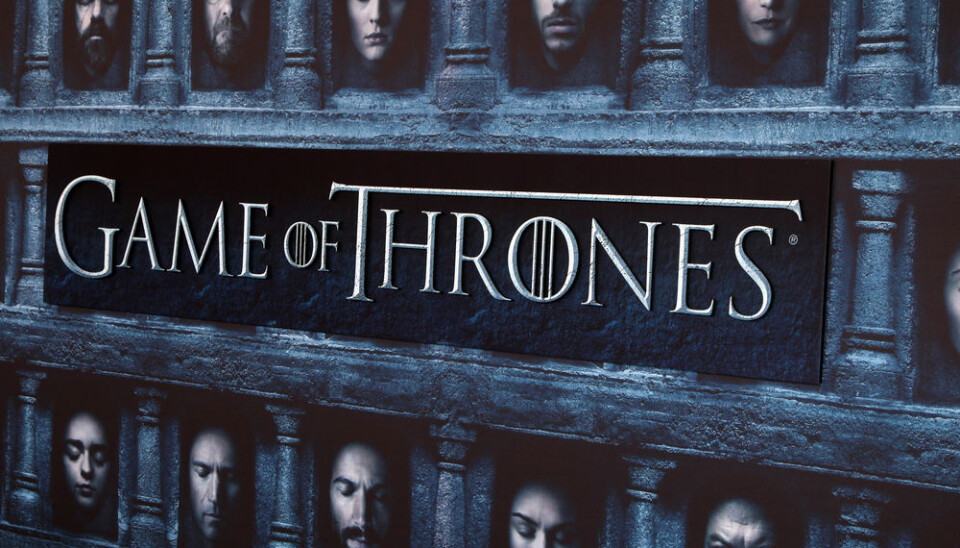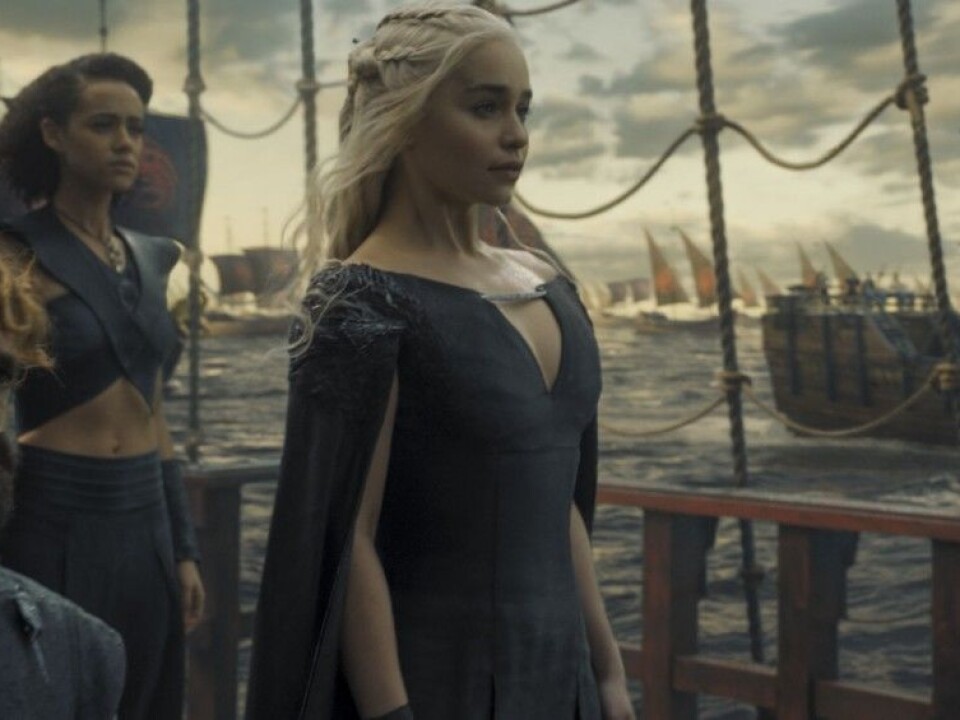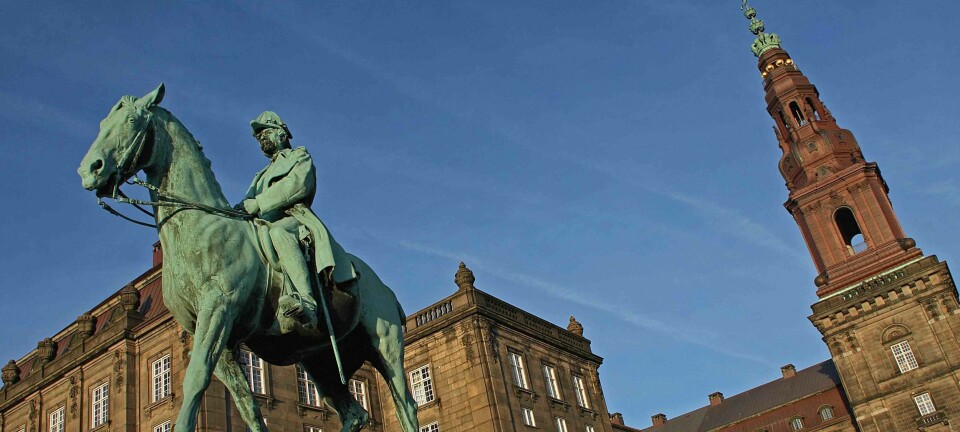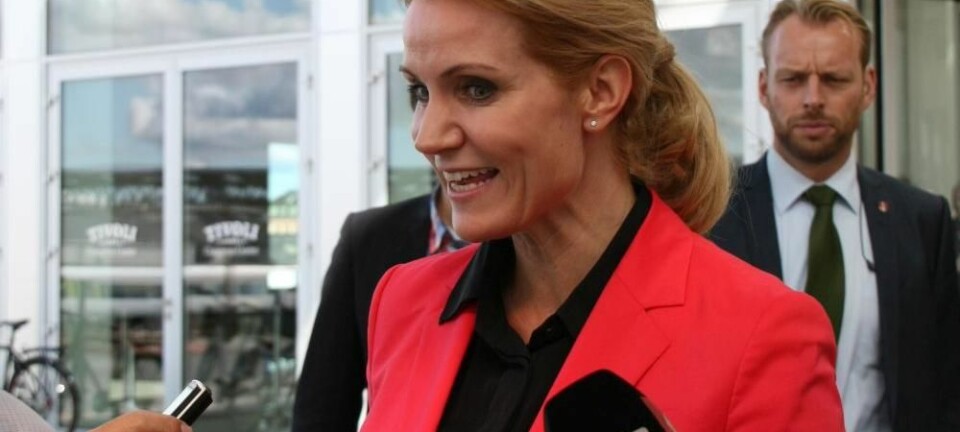This article was produced and financed by University of Stavanger

Professor knows who will win the Iron Throne
Spoiler alert! This Professor thinks that he can predict who will win the Iron Throne. Just so long as the author, George R. R. Martin, has read Max Weber's economic theory.
“There is one condition though – that the author George R. R. Martin must have read Max Weber”, says Oluf Langhelle, professor of political science at the University of Stavanger, and an avid fan of the series.
So what happens when you use Max Weber’s perspectives on power to analyse Game of Thrones? You end up with a colossal spoiler, and interesting thoughts on whether our own society could be on its way back to a pre-modern era.
Violent power games
The TV series Game of Thrones has gripped audiences with its violence, sex and power games. The action takes place in the Seven Kingdoms, on the fictitious continents of Westeros, Essos and Sothoryos, where the ‘summers can span decades and winters last a lifetime’.
This is a violent feudal society with lords, warriors, servants and farmers in a medieval setting with dramatic and supernatural features. The series follows minor and major characters in and around the brutal and thrilling power battle for the Iron Throne. This game of thrones is being fought between the kingdom’s noble families.

“In Westeros, power is largely legitimised by traditional sovereignty – and that is an incredibly poor way to govern. The houses of Stark, Lannister, Baratheon, Tyrell, Baelish and Arryn are all equally bad for Westeros, because they take their authority from the traditional form of sovereignty”, says Langhelle.
Here, the system of government is dominated by an autocratic ruler or ruling house, power is inherited, and fear keeps the people in check.
Charisma is not enough
However, Langhelle has little faith in the alternative form of sovereignty, that based on charisma, which is when the ruler’s personal qualities form the basis of legitimate power. He considers that Daenerys is without doubt the most charismatic figure in the series.
“She has ambitions, she challenges social structures, has clear opinions about what is right and wrong, and she is a visionary. And not least, she has extraordinary personal qualities and a type of magnetism. She attracts several of the key characters in Game of Thrones”, he says.
However, that is not enough. Charisma is an unstable basis on which to legitimise power. When the charming and charismatic leader is not present, the entire foundation of that system of government disappears.
Varys as super-bureaucrat
Daenerys therefore needs sovereignty in the form of legality, which entails governing with the aid of laws and rational organisation. She needs Westeros to be modernised.
“That is the only way out of the pre-modern era. It is the only way she will be able to create a stable system of government in Westeros”, says Langhelle.
Modernisation also brings bureaucracy, which is the instrument of the law and an effective method of practising policies.
Bureaucracy already exists in Westeros. It is primarily in the form of the Night’s Watch, a military order of guards organised according to laws and rules, and with clear bureaucratic features which benefit the collective whole.
“There is also Varys, the ultimate bureaucrat! He serves anyone who sits on the Iron Throne, no matter who they are. He sees that power lies where people believe it lies, not necessarily where it actually lies”, says Langhelle.
The only hope for Westeros
Daenerys will seize the Iron Throne because she manages to embody Weber’s ideal types. She has the traditional element, i.e. the blood line. She has the charismatic element, more than any other character. And she is extremely clever at forming alliances.
“Daenerys will form an alliance with the bureaucracy of the Night’s Watch, and with Varys, with the added benefit of some dragons and an army. But it is the first elements that create the foundation that enables her to have those dragons and an army in the first place”, says Langhelle.
He believes that these elements are the only hope for institutional change in Westeros. The only thing that can threaten his conclusion is the author George R. R. Martin.
Langhelle refers to Martin’s quote that every time someone asks him when the next book will be coming out, he kills off one of the book’s characters.
“I have no guarantee that he will spare my hero. But if he has read Weber, the course is already set”, he believes.
Are we going the wrong way?
While there may be some seeds of modernisation in Westeros, Langhelle questions whether our society is starting to return to the pre-modern era.
“We are seeing more charismatic leaders, more fundamentalism in religion, the rejection of science, we are seeing populism and tribalism, such as Brexit. Not to mention ‘alternative facts’, which are not a new form of statesmanship. These are attacks on the ideals of the Age of Enlightenment, and not least on the concept of progress”, says Langhelle.
He, and millions of other viewers all over the world, are waiting for the seventh season of the series, which will be broadcast sometime in 2017. But it is not until the eighth and final season is broadcast in 2018 that we will get the final answer to whether Weber’s perspective on power will prove to be correct in Westeros.
































